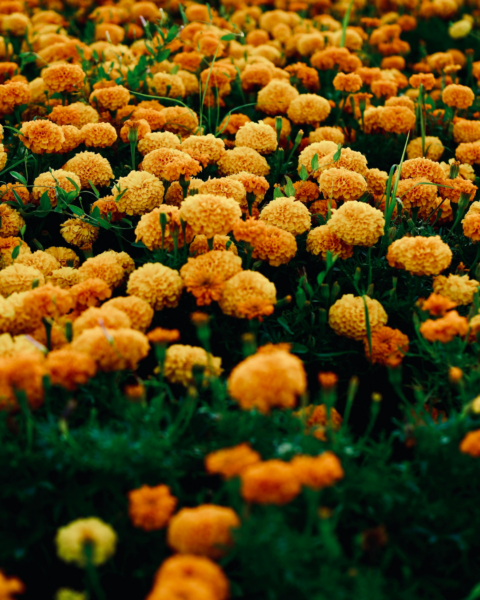
The woman who sat in the chair opposite me looked understandably frightened. It was her first day there, what would become part of her routine over the next several weeks. Her husband sat beside her holding her hand, stroking her skin gently, reassuringly, as if to say, I am here with you in this and through this. The nurse sat fixed before them, taking her time to explain the whole process of receiving treatment for cancer, what she should expect, how she would feel. Of course, any words can never do justice to the experience of allowing chemicals to flow through your veins in the quest for healing. Chemicals that bring on nausea and hair loss, among other undesirable side effects. She was probably in her 40’s, much too young to face the threat and specter of cancer.
Every ten weeks I make a trip over to the hospital to receive an infusion of Remicade, a treatment for rheumatoid arthritis, an auto-immune illness. It is what is called a disease-modifying drug, rather than an anti-inflammatory. It acts to suppress the part of the immune system they believe is responsible for the attack on joint tissue. Rather than taking a pill every day, the medication is administered by IV drip over a period of two hours every few weeks. I have been making this journey for the last six years and have had RA for a total of fifteen years. Side effects of this drug include decreased resistance to infection, although I have thankfully encountered no negative effects thus far.
The infusion takes place in the Oncology Infusion Center, and so most of the people coming to this place have one form or another of cancer. Each visit I always share my room with two or three others receiving various kinds of chemotherapy treatments. Some of it is clear liquid like my own, sometimes I see people receiving a vibrant red liquid that apparently can burn the skin if it makes contact.
The times I spend there I am filled with gratitude, gratitude for the advances in medication that have taken place since I developed this illness, gratitude for access to comprehensive health insurance and care, gratitude for supportive friends and family. I sit back in my recliner chair under the flourescent lights watching the clear liquid drip through the tube, receiving the gifts it offers my body, relishing the ways it allows me to continue to thrive with greatly diminished pain in my life. This infusion is truly a sacrament for me, a gift of healing grace in my life.
This medication, I have been told, would cost about $36,000 a year if I paid out-of-pocket. I pay only $20 with each visit. Clearly no one receives this medication without prescription coverage. Currently over 45 million people in this country are denied health care coverage. There was a very moving book published about three years ago titled Denied: The Crisis of America’s Uninsured and contains 40 heartbreaking stories of families whose lives were shattered by illness and who were unable to receive care and treatment available because of lack of health care coverage. They chose 40 to represent the 40 million at the time who were uninsured, now the number has risen to over 45 million at last count. This is a complete failure of the imagination.
Before I started receiving this treatment I had such a bad flare I literally couldn’t rise from bed by myself. At the same time our rent was doubled (we were living in San Francisco) and my husband’s job at the church was getting cut back to half-time. I was in graduate school full-time so we had no safety net. Thankfully with time we found another home and another job, and my doctor started me on this medication. It was fairly new at the time. Without it I would surely be living with excruciating pain and severe deformity of my joints. Without her chemo, the woman sitting across from me would likely be risking death. So it was with the stories in the book I mentioned above, so many unable to receive treatment for cancer or other diseases because insurance had been lost through unemployment, or a series of crises, and the tenuous safety net most of us live with had broken.
The landscape of illness, much like the landscape of grief, is a vastly different world than the one most of us inhabit. It is a place where everything we have taken for granted gets turned upside down. It is a place of great rawness and vulnerability. A place where we are forced to face the profound and delicate tenderness of our bodies, often forced to let go of dreams gone unfulfilled, reevaluating our futures, being more grateful for the gifts that health brings, praying that we are able to taste health again. It is a place where we become initiated into a vast sisterhood and brotherhood of tenuousness. To suddenly have the veil of illusion of the seeming permanence of good health lifted can bring tremendous sorrow and heartbreak.
I have been through some very painful times with my illness, I was in my twenties when diagnosed, my mother the only other person I knew with the illness and she had not fared well. I have had my share of great despair, of asking why, of wrestling with God. And I likely will have more. One day I found a photo of myself at the age of two or three in mid-giggle. I loved the innocence of that moment, my own moment of Eden, a time long before I had confronted the terrible suffering of the world, the pain of my own life. It has been on my altar ever since. Not because I long to return to that innocence, but as a witness to the joy that dwells deep inside of me despite all the forces that may conspire to quell it.
Somehow I have avoided bitterness over my losses. Perhaps it is because I see so clearly that none of us can evade loss, none of us can escape mortality. In that awareness comes responsibility to witness to it, to promise to make visible the suffering of others. Why we suffer is of course one of the great questions of all time. It is one I try to wrap myself in at times. But more often than not, I wonder that there is such immense beauty in the world. There are many who act purely out of self-interest, but far more who try their best to live from a place of great love and hunger for connection. Those who won’t deny the suffering of the ones they love, but who promise to dwell in those cracks with them. I am aware that my own marriage vows of “in sickness and in health” have been called upon again and again.
In those moments of grace, when we love fully despite the suffering we have known or the loss we fear, when we laugh in face of the multitude of reasons for crying, when we cry fully and deeply despite those who would want us to keep our suffering silent, when we feel moved to create something of beauty in the midst of ugliness, in the midst of this great Mystery God pulses, in those moments of ordinary grace.
-Christine Valters Paintner





18 Responses
By the way, just to add to the above and for all of you dealing with chronic illness of all kinds, I would highly recommend two books:
Kat Duff, The Alchemy of Illness
Susan Griffin, What Her Body Thought
Both are powerful personal narratives that also weave it great social critique about how illness is regarded in our culture and both deal with the invisible illness of chronic fatigue syndrome.
Hi Wendy, thanks so much for your comment. I am very sorry to hear about your pain and limitations. Thank you for the web link. I will see where contemplating my experience of applying for disability takes me in my writing. It was a very disheartening experience, certainly one that raised huge issues of voice for me, having my experience and reality validated (or rather invalidated in this case).
Blessings, Christine
PS I’d really love to see a post on the world of getting disability—or rather not getting it. Many of those with Invisible Disabilities (see http://www.myida.org/index.html) like myself have pretty much given up there…
I’m so very sorry you suffer with this Christine. I have a chronic spinal/nerve injury that has left me in chronic pain and unbelievably limited, so though our experiences are different (I’ve never had what you have, nor do I have to undergo the invasiveness of infusions) I do understand chronic pain and disability. You expressed so much I echo as well (though could never do so as elequently!) when you shared this:
“The landscape of illness, much like the landscape of grief, is a vastly different world than the one most of us inhabit. It is a place where everything we have taken for granted gets turned upside down. It is a place of great rawness and vulnerability. A place where we are forced to face the profound and delicate tenderness of our bodies, often forced to let go of dreams gone unfulfilled, reevaluating our futures…”
Bette, you bring up a good point, sadly men are not encouraged to share their feelings and live into grief. Know that you witness to both of them.
Sue, thanks for stopping by. I did chemotherapy (methotrexate) for several years until it stopped working for my RA. Blessings for you and Pillar and what lies ahead.
Peace and grace, Christine
Thank you for this post Christine. My prayers are with you. My partner took chemotherapy for his MS, which is also now assumed to be an auto-immune condition. He was on methoxanthrone for two years. The best outcome is that the drug suppressed the immune systerm, and therefore suppresses the auto-immune condition. Pillar has pretty much held his own for a few years, so it seems to have worked.
The treatments were rough, but in Pillar’s view, worth it.
Bless you.
There is strength and love in sharing each other’s griefs and pains. Thank you for sharing yours with us. You have a discerning soul.
Alot of men do not want to or know how to share these things. They miss out on experiencing this strength and love. My husband for one. I fear my son is like him, too. Lately…this has been a big part of my own grief and pain. But I continue to pray for us all.
Thanks Cathleen and welcome! So glad you found your way here. Yes, disability benefits is a whole other post for another time. Blessings on your own journey of healing, may you find what works and strengthens you.
Thanks Songbird, I seem to be really baring my soul lately. Grief has that way of making everything pour out.
Christine
Oh, Christine. I had no idea. Thank you for expressing so many important thoughts and feelings in this post.
What timely and poignant words you share for all who live with the mystery of illness, pain, disease. The invitation to live such our life differently can be a lonely journey so companions and shared stories along the way are like manna. I live with chronic pain whose source has been difficult to pinpoint which makes the journey of disability benefits yet another story. Tomorrow I am to receive my 4th set of prolotherapy injections, hoping they will continue to strengthen weak ligaments. Your words remind me of the grace and gift even in the midst of very painful treatments. Thank you for your witness of hope, of community, of life.
Blessings to you,
Cathleen (I found your site from Trish’s site :) )